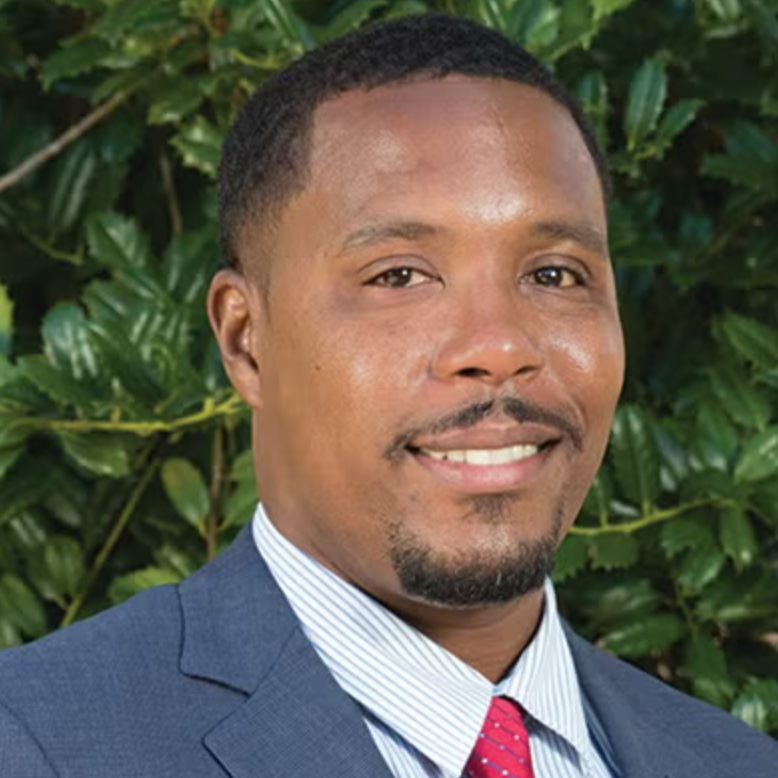Where Everybody Knows Your Name: Leading in a Small Rural Community
Thoughts from the recent Consulting from the Couch podcast interview with Schumata Brown, Town Manager of Maysville, NC, about leading in a small rural community.
Leadership looks different when your office is the grocery aisle, the church parking lot, and sometimes a muddy trench on a Tuesday.
That’s everyday reality for Maysville, North Carolina’s town manager, Schumata Brown, whose job description reads more like a calling than a contract. In a small town, leadership is personal—because the people you serve are the same ones who sit beside you in church, wave as you drive by, and call your cell when something breaks. There’s no hiding behind hierarchy when your accountability is measured face-to-face.
The core of Schumata’s approach is refreshingly simple but relentlessly demanding: listen first, act transparently, build trust, and measure success by the lived experience of your neighbors. In rural leadership, credibility doesn’t come from titles—it comes from showing up, following through, and staying approachable when decisions get tough.
Infrastructure as Integrity
Every leader wants progress, but in a small town, progress starts with pavement. Aging water lines, weather-beaten roads, and thin budgets demand tough choices. Schumata’s team prioritized equity and safety first—fixing what serves the most residents and ensuring that improvements don’t skip neighborhoods that are out of sight or unheard.
The result? A remarkable achievement: roughly 95% of Maysville’s streets have been paved—the most extensive work since those roads were first built. The secret wasn’t a sudden windfall; it was strategic layering. Town funds met state support and legislative appropriations, proving that disciplined planning and durable partnerships can stretch small dollars into big impact.
Infrastructure may be unglamorous, but in Maysville, its leadership made it visible. Every smooth road is a signal of commitment—proof that steady stewardship still matters.
Building a Future That Works
Ask Schumata where the town’s real legacy will be, and he’ll point not to the roads, but to the people learning to build and repair them.
The town’s transformation of a historic train depot into a workforce development center, in partnership with Lenoir Community College and the Golden LEAF Foundation, is a bet on the trades—and on youth. Courses in plumbing, electrical, HVAC, and water/sewer operations prepare students for well-paying, essential careers that keep small towns running.
This is not a nostalgic return to “blue collar” work; it’s a forward-looking strategy. As four-year degrees flood the market, skilled trades are resurging because they can’t be outsourced, automated, or delayed when a pipe bursts or a power line snaps. Maysville isn’t just keeping its young people home—it’s giving them reason and pride to stay.
Small Business, Big Heart
Economic development in rural America often comes down to creativity, not capital. The Maysville Marketplace is proof.
What was once an empty lot is now a cluster of affordable 10-by-12 sheds—converted into storefronts for first-time entrepreneurs. A coffee and tea vendor, a gifts-and-apparel maker, a produce stand, and a pet feed shop are thriving in these small spaces, proving that a little square footage and a lot of belief can transform a block.
Behind the scenes, the town simplified permits, offered microloans, and even helped owners write grants. It’s hands-on governance at its best—local government acting as a launchpad, not a gatekeeper.
“We’re not trying to compete with big cities,” Schumata says. “We’re trying to build a place where people can see themselves succeeding here.”
That’s what makes Maysville’s motto, “Naturally Welcoming,” more than a slogan—it’s policy in practice.
The Human Side of Accountability
Leadership in a small town is a mirror. Every decision is visible, every delay is personal, and every choice is debated over coffee the next morning.
Schumata approaches criticism with humility, not defensiveness. He listens, explains, adjusts—and keeps showing up. Trust, he reminds us, isn’t built in big announcements; it’s earned in small conversations over time. Transparency isn’t a buzzword here—it’s how you survive.
In a world where leaders often retreat behind messaging, this kind of openness feels radical. It’s leadership by proximity—close enough to hear the complaints, honest enough to own mistakes, and resilient enough to try again tomorrow.
Celebrating the Everyday Heroes
None of this happens without the people who keep the town running. Schumata is quick to credit the public works crews, administrative staff, police, fire, and volunteers who make Maysville hum.
Turning a faucet or flipping a light switch is invisible work—until it fails. Recognizing those who make it possible is both good culture and good governance. Leadership, after all, shines brightest when it shines on others.
That humility has ripple effects. It reminds everyone—from employees to residents—that progress is shared work, and gratitude is its own form of infrastructure.
Small Town, Big Lessons
Maysville’s story offers a playbook for any leader—rural or urban:
Listen first, act with transparency.
Layer partnerships to stretch resources.
Invest in people, not just projects.
Simplify pathways for small businesses.
Celebrate those who make the town run.
When leadership is this personal, culture becomes self-reinforcing. People trust because they’ve been heard. They contribute because they’ve been seen. And they stay because their work—and their worth—are visible in every corner of town.
In Maysville, progress isn’t measured by headlines. It’s measured by smoother roads, skilled hands, open storefronts, and steady hearts—the kind of legacy that doesn’t need a press release because everyone in town can see it, feel it, and name it.
To listen to the podcast interview with Schumata, click here

